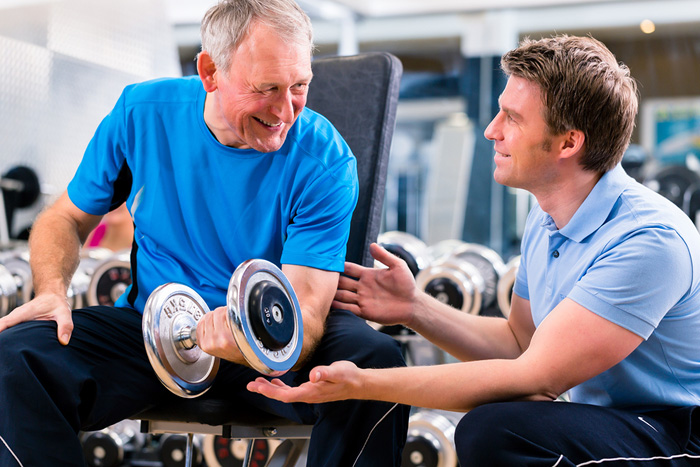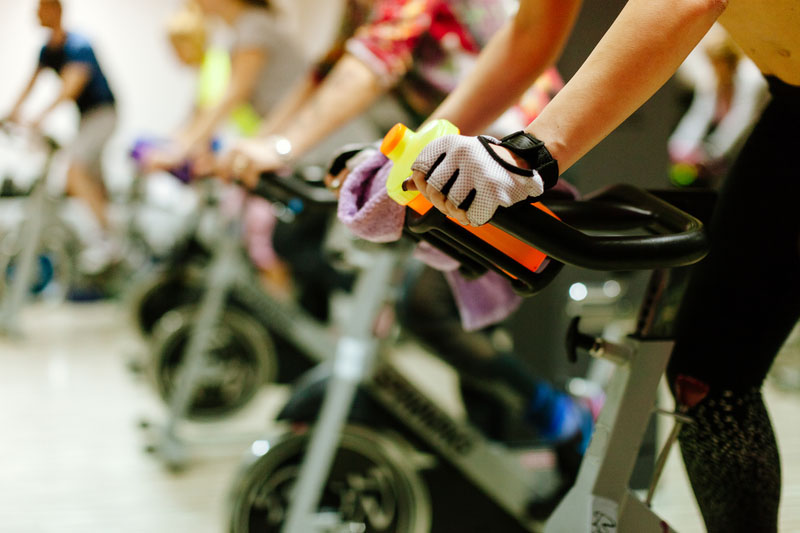Exercise and Mental Health - Flex Your Muscles to Flex Your Brain

Exercise and mental health are more linked than most people realize. Exercise is great for your mind and your body!
Exercise can help you maintain a healthy body weight so that you look and feel your best at any age, but there’s a lot more to the story. Modern research is proving that working your muscles can have a positive impact on your brain as well as your physical shape, so it’s not all about how you look in your jeans.
If you need a bit of motivation to get back to the gym or to restart those evening walks, take a look at some of the proven mental health benefits of exercise.
Check out Peloton Bikes and Equipment at Amazon
Exercise for Depression & Anxiety
Depression is one of the most common mental disorders in the United States. It can affect people of all races, ages, and socioeconomic classes. There is increasing evidence that exercise can play an important role in combating the symptoms of depression.
When researchers asked 30 moderately-depressed men and women to walk for 20-40 minutes three times per week, they found that the walkers experienced a more dramatic improvement in depression symptoms than other study participants assigned different treatments. There are many other studies with similar results, proving that physical movement lifts the symptoms of depression as well as anxiety and other mood disorders.
There are several ways that exercise can help relieve or possibly prevent depression. Exercise:
- releases endorphins that promote a good mood and happiness;
- releasing neurotrophic chemicals that promote nerve cell growth in the hippocampus, which is responsible for regulating your mood; and
- increases serotonin levels.
The release of endorphins takes effect while you’re exercising, so you have an immediate benefit. The release of neurotrophic chemicals is a long-term benefit of combining exercise and mental health that may help keep depression at bay.
Body Image, Exercise and Mental Health
People who incorporate exercise into their daily lives typically have a more positive body image than people who don't exercise. This likely comes from the release of those “feel good” endorphins plus the ability to control body weight with greater ease. Body weight can impact clothing choices and many other factors that influence body image.
When you look good, you feel good. When you feel good, that confidence shines on the outside and you look good. It creates a cycle from how you think about yourself to how you carry yourself, dress yourself and assert yourself in a variety of everyday situations. Exercise keeps your body toned and flexible so that you’re more likely to love what you see in the mirror and hold your head high with greater confidence.
There is also a short-term version of this, according to one study, that asked women to either sit down to read or perform a 30-minute workout. The participants who completed the workout experienced more positive thoughts about their bodies for up to 20 minutes while the positive impact of reading was less inspiring.
Exercise for Insomnia & Other Sleep Disorders
If there is one thing that will put you in a bad mood or make you irritable and depressed, it’s sleep deprivation. You can’t function at peek physical or mental performance when you don’t get adequate rest, and that deprivation will impact every area of your life.
The good news is that scientific research has demonstrated many correlations when linking exercise and mental health care, such as a positive impact on sleep that may help some people overcome insomnia.
In one study, older adults were able to improve their quality of sleep after performing aerobic exercise for just four months. They also experienced less sleepiness during the day and reported fewer symptoms of depression.
Notice that the preceding study touches on daytime alertness, depression and sleep quality all at once. Lack of sleep increases your risk of depression, irritability and mood swings, so you have greater power over multiple mental health issues by simply regulating your sleep schedule and sticking to an exercise plan long term.
Sufficient sleep makes it easier to stay awake during the day to perform your exercise routine, and performing that exercise routine will likely help you sleep. Better sleep can help improve your mood, and an improved mood will help keep you committed to your exercise plan.
Once again, we can see how the connection between exercise and mental health creates beneficial cycles. Positive action leads to positive thought, and positive thought promotes positive action.
Ready to Start Moving?

We now know that exercise and mental health are linked. If your lifestyle is currently sedentary, start gradually adding exercise into your daily life. You may start by improving your overall activity level by getting up and moving around 10 minutes every hour during the day. Going out for short walks at least once or twice a day may be your next step. Eventually, you may find yourself briskly walking for an hour or more each day.
Perhaps you may decide to join a water aerobics class at the YMCA or start going to Zumba classes at your local community center. Set a goal to move your body in some way each day, and you’ll see dramatic improvements in how you look and feel over the course of weeks, months and years.
What you choose to do today has a dramatic impact on what you’re able to do in the future.

More Topics That May Interest You
Muse is a brain-sensing technology that synthesizes traditional psychotherapy with mindfulness theory and yoga. It is used around the world by neuroscientists, researchers, health professionals, and projects in hospitals and universities including NASA, The Mayo Clinic, UCL, MIT and many more to improve sleep and manage stress.
Some of the advertisers on my website are affiliate partners, which means that I may receive a small commission from any sale, at no extra cost to you.
For example, the Amazon affiliate advertising program is designed to provide a means for sites to earn fees by advertising and linking to amazon.com.
Your tips and purchases help to support this free-information website.
Thank you.
The content of this website is for informational purposes only and not intended to be taken as a replacement for professional medical advice, care, diagnosis or treatment by a doctor, dietitian, physical therapist, nutritionist or fitness instructor.
DO NOT BEGIN ANY EXERCISE PROGRAM WITHOUT CHECKING WITH YOUR DOCTOR FOR UNDERLYING CONDITIONS THAT MAY PREVENT YOU FROM DOING SO.











